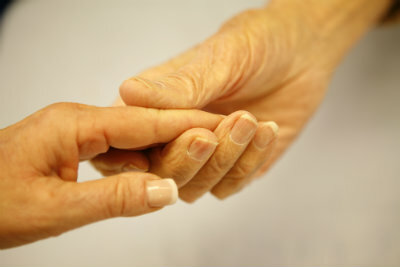Dispelling the Myths About Hospice


Dispelling the Myths About Hospice
Skirball Hospice, a program of the Los Angeles Jewish Home, provides compassionate end-of-life care, enabling individuals and families to overcome fear and discomfort, to cope with loss, and embrace the experience and value of each and every day of life. Hospice care recognizes the needs of patients who choose to remain where they live, outside of the hospital, so they can be surrounded by loved ones when hospitalization is no longer expected to cure their illness. Skirball Hospice provides the support that allows someone to spend the last stages of life in a loving environment, comforted by friends and family, and free from discomfort.

While the use of hospice services has increased over the years, many people are still uncertain about the type of services available through a hospice program and when end-of-life care can be accessed. Some people are still unaware that hospice care exists. Lack of knowledge and understanding about hospice programs may lead individuals and family members to make less than optimal decisions at a very important time.
Let’s take this opportunity to dispel some of the most prevalent myths about hospice, according to the National Hospice and Palliative Care Organization:
MYTH: Hospice is where you go when there is nothing more a doctor can do.
FACT: Hospice is care designed for patients with a life-limiting illness. Hospice is not where you go to die; hospice professionals are trained to assist patients in living their lives fully, completely, and without pain until the end of their lives.
MYTH: To be eligible for hospice, I have to be in the final stages of dying.
FACT: Hospice patients and families receive care for an unlimited amount of time, depending upon the course of the illness. There is no fixed limit on the amount of time a patient may continue to receive hospice services.
MYTH: Quality care at the end of life is very expensive.
FACT: Medicare beneficiaries pay little or nothing for hospice. For those not eligible for Medicare, most insurance plans, HMOs, and managed care plans cover hospice care.
MYTH: If I choose hospice care, I have to leave my home.
FACT: Hospice care is provided wherever the patient may be: in their own home or the home of a family member, a nursing home, or an assisted living facility. Hospice is also provided in in-patient units, VA hospitals, and some correctional facilities.
MYTH: Families are not able to care for people with life limiting illnesses.
FACT: Family members are encouraged, supported, and trained by hospice professionals to care for their loved ones. Hospice staff is on call to patients and their families 24 hours a day, 7 days a week, to help family and friends care for their loved ones.
MYTH: Hospice care is only for cancer or AIDS patients.
FACT: Fifty percent of hospice patients are diagnosed with conditions other than cancer or AIDS.
MYTH: Hospice is just for the elderly.
FACT: Hospice is for anyone facing a life-limiting illness, regardless of age.
MYTH: There’s no hospice in my area.
FACT: Less than one percent of Medicare beneficiaries live in an area where hospice is not available.
MYTH: After the patient’s death, hospice care ends.
FACT: Bereavement services and grief support are available to family members for up to one year after the death of a patient. At Skirball Hospice, this support is available for thirteen months.
The Jewish Home’s Skirball Hospice is the only Jewish sponsored hospice in the Greater Los Angeles area. Skirball Hospice supports and assists families and caregivers with compassion and expertise with an integrated team, including physicians, nurses, rabbis, medical social workers, registered dietitians, and certified home health aides.
Individuals and families have the option to specifically request Skirball Hospice for end-of-life care. For more information, please contact Skirball Hospice at (877) 774-3040 or www.skirballhospice.org.